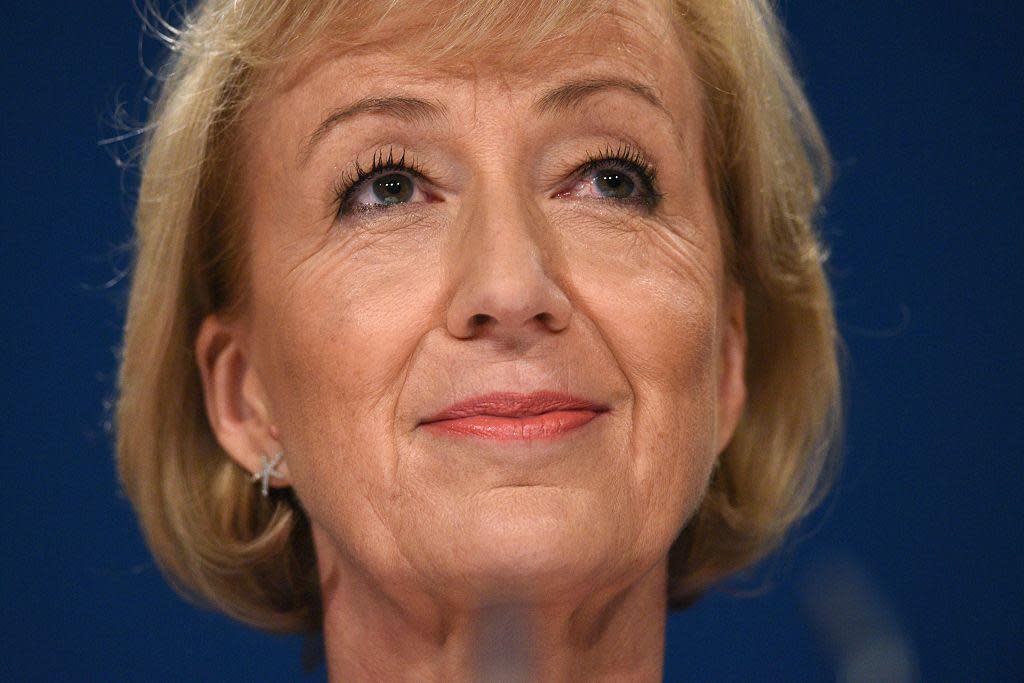Government says it won't publish air pollution plan as it would drop 'controversial bomb' on election

Publishing the Government’s latest plan to bring air quality within safe limits would drop a “controversial bomb” into the general election campaign, a lawyer acting for Ministers has told the High Court.
Judges have twice ordered the Department for Environment, Food and Rural Affairs (Defra) to come up with a better way of reduction air pollution that causes about 40,000 premature deaths a year after legal action by the environmental campaign group ClientEarth.
Under the latest order, it had until 4pm on 24 April to produce its latest strategy.
But, after Theresa May called the general election for 8 June, Government officials went to court to ask for a delay. Andrea Leadsom, the Environment Secretary, told the Commons air pollution did not count as an emergency so the plan could not be published during the pre-election period of 'purdah'.
Speaking at London's High Court, James Eadie QC, acting for the Government, said that publication now would drop a “controversial bomb” into the mix of local and national elections.
He said the application was made with considerable reluctance and was not “some sort of guise or demonstration of lack of commitment to improving air quality”.
It was made because of the impact of launching a consultation on such an important and controversial issue during the forthcoming democratic process, he said.
The better course, Mr Eadie argued, would be to put publication on hold until after the election and not “crystallise” the issues at this point. This would be more efficient, he suggested.
Nathalie Lieven QC, for ClientEarth, said the Government's application did not identify sufficient grounds to justify a delay until after the general election.
"This is a huge focus of public concern and a huge issue for the media," she said.
"It is an issue in this election whether the Government publishes the consultation or not.
"The controversy is there and is not going to be put on hold by not publishing the consultation document."
In an emailed comment, Areeba Hamid, a Greenpeace clean air campaigner, also dismissed the arguments put in favour of postponing publication.
“The Government says air pollution is so controversial that publishing the plan would affect the election,” she said.
“But air pollution is already a huge issue for the public and shelving the plan won't put that controversy on hold. All it will do is delay urgent action to tackle the air pollution health crisis.
“It is nonsense to suggest that delaying the plan by six weeks won't have any impact in the real world. Air pollution is responsible for a host of health impacts and the court identified that this was an urgent crisis that required action as soon as possible.”
She said that “admitting the extent of the air pollution crisis” would be “politically uncomfortable for the Government”.
“However, it is wrong for the Government to put poll ratings before public health, and that is what it is doing by trying to hide behind constitutional procedures to delay release of this desperately needed air pollution plan,” Ms Hamid said.
Professor Jonathan Grigg, an expert in paediatric respiratory and environmental medicine at Queen Mary University of London and founding member of campaign group Doctors against Diesel, said the attempt to put off publication suggested Ministers were not overly concerned about air pollution.
“The Government’s defence does not address our central concern about what delaying the plan could mean for public health,” he said.
“Their argument is that the issue of air quality is a ‘controversial bomb’ that cannot be discussed during the election period – but this is the case with or without release of the Air Quality Plan.
“Delaying action to tackle air quality will only increase concern that the Government do not take seriously the impacts of air pollution on the health of children and vulnerable groups.”
The Press Association contributed to this report

 Yahoo News
Yahoo News 
